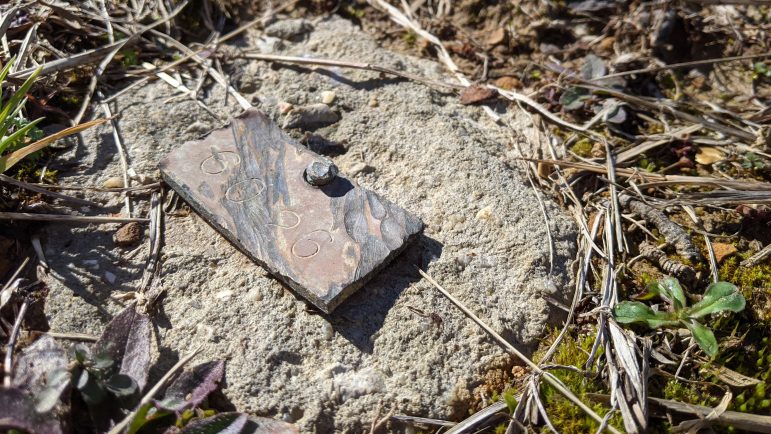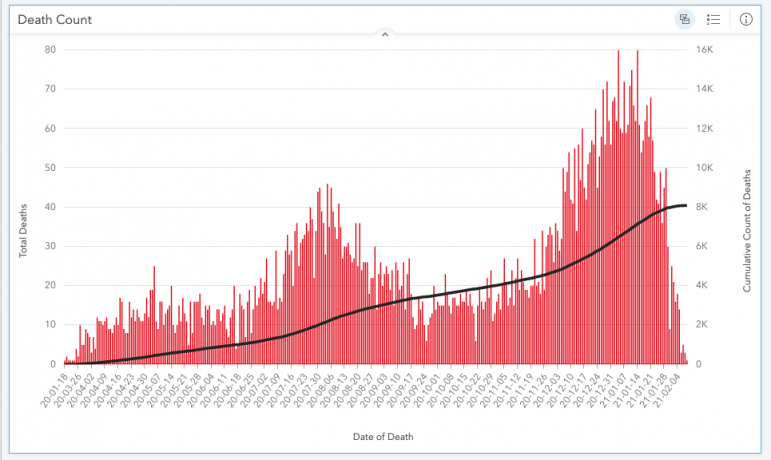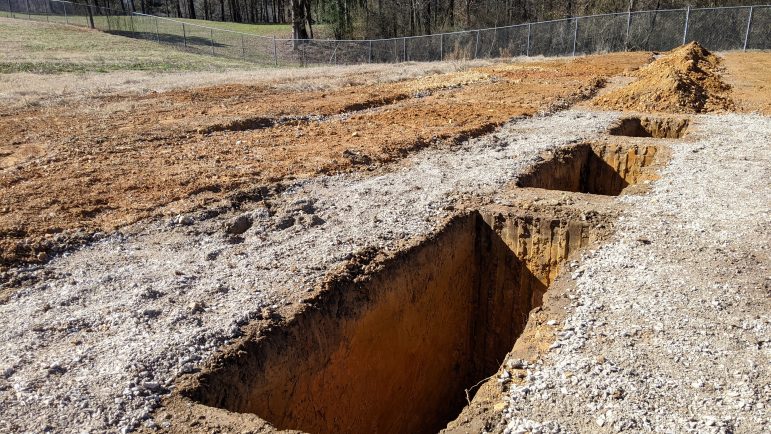Surge In Deaths Strains Local Funeral Homes, Morgue
The Jefferson County Cemetery is the final resting place for people who are indigent and for those with no family to claim them. It’s a big grassy field surrounded by a chain link fence behind the Morris Ballpark north of Birmingham.
Michael Crane, the cemetery caretaker, digs the graves and remembers who is buried in each plot. Because there are no headstones, Crane makes homemade markers out of old fruit cans that he fills with cement and uses to identify each grave.

The number of deaths in Jefferson County hit an all-time high in 2020, largely related to the coronavirus pandemic. For people like Crane and those who work in funeral homes and morgues, the volume has been unprecedented, testing the limits of the system that cares for the dead.
In recent months, Crane and his crew have buried four people every week, which is the most they can transport to the cemetery. And he said there are almost always more bodies waiting in the morgue.
“There’s usually at least one COVID patient a week, sometimes two,” Crane said. “So there has been an increase since COVID came about.”
‘So Much Death’
W. Eric Lusain, owner of W.E. Lusain Funeral Home and Crematory, has been in the funeral business for more than a decade and is overwhelmed by the surge in COVID-19 deaths.
“Honestly, I could not fathom the numbers that we’ve hit this month back in March,” Lusain said.
Pre-pandemic, Lusain’s funeral homes in Birmingham and Hoover dealt with about 70 deaths a month. In January, that number doubled.
To keep up, Lusain bought a second crematory last year and hired a few more staff members.
He said they’ve managed, but the pandemic has taken a toll.
“Mentally, you know, I’m not ashamed to admit it, the other day I was saying, ‘I really need to probably go sit down with a therapist.'” Lusain said. “There’s so much death. And you’re working 12-hour days nonstop.”

Contributing Factors
COVID-19 deaths represent only part of the picture in Jefferson County.
“The system as a whole has been stressed,” said the county’s chief deputy coroner Bill Yates. “So we have seen a surge in medical examiner’s cases. Those are sudden and unexpected deaths.”
Last year, there was an increase in deaths due to both homicide and drug overdose, with preliminary data showing that there were likely more deaths from drug overdose in 2020 than ever before.
While dealing with the surge, the county morgue has had to store bodies for longer periods of time. Yates said many hospitals and funeral homes have limited cold storage capacity and in some cases, it is taking families longer to schedule burials.
Yates said the morgue has been 95 to 100 percent full since November.
Preparing For Worse
This week, Yates said the number of bodies coming into the morgue has started to go down, likely related to a recent decline in COVID cases.
The county did not have to resort to creating additional morgue space like other states have had to do. But Yates said it could still happen.
“One thing I am surprised is that as a whole, the industries and those who are dealing with the dead here in Jefferson County, I think we were lucky. I think that it’d still be possible for us to be swamped,” Yates said.
He said the county did develop a plan in case things were to get that bad, but he hopes the worst is over.

For now, at the Jefferson County Cemetery, caretaker Mike Crane is still busy burying the bodies waiting at the morgue. Crane said he will probably bury four more unclaimed bodies next week.
Trump warns Iran not to retaliate after Ayatollah Ali Khamenei is killed
The Iranian government has announced 40 days of mourning. The country's supreme leader was killed following an attack launched by the U.S. and Israel on Saturday against Iran.
Iran fires missiles at Israel and Gulf states after U.S.-Israeli strike kills Khamenei
Iran fired missiles at targets in Israel and Gulf Arab states Sunday after vowing massive retaliation for the killing of Supreme Leader Ayatollah Ali Khamenei by the United States and Israel.
House Dem. Leader Jeffries responds to air strikes on Iran by U.S. and Israel
NPR's Emily Kwong speaks to House Minority Leader Hakeem Jeffries (D-NY), who is still calling for a vote on a war powers resolution following a wave of U.S.- and Israel-led airstrikes on Iran.
Iran’s Ayatollah Ali Khamenei is killed in Israeli strike, ending 36-year iron rule
Khamenei, the Islamic Republic's second supreme leader, has been killed. He had held power since 1989, guiding Iran through difficult times — and overseeing the violent suppression of dissent.
Found: The 19th century silent film that first captured a robot attack
A newly rediscovered 1897 short by famed French filmmaker Georges Méliès is being hailed as the first-ever depiction of a robot in cinema.
‘One year of failure.’ The Lancet slams RFK Jr.’s first year as health chief
In a scathing review, the top US medical journal's editorial board warned that the "destruction that Kennedy has wrought in 1 in office might take generations to repair."




